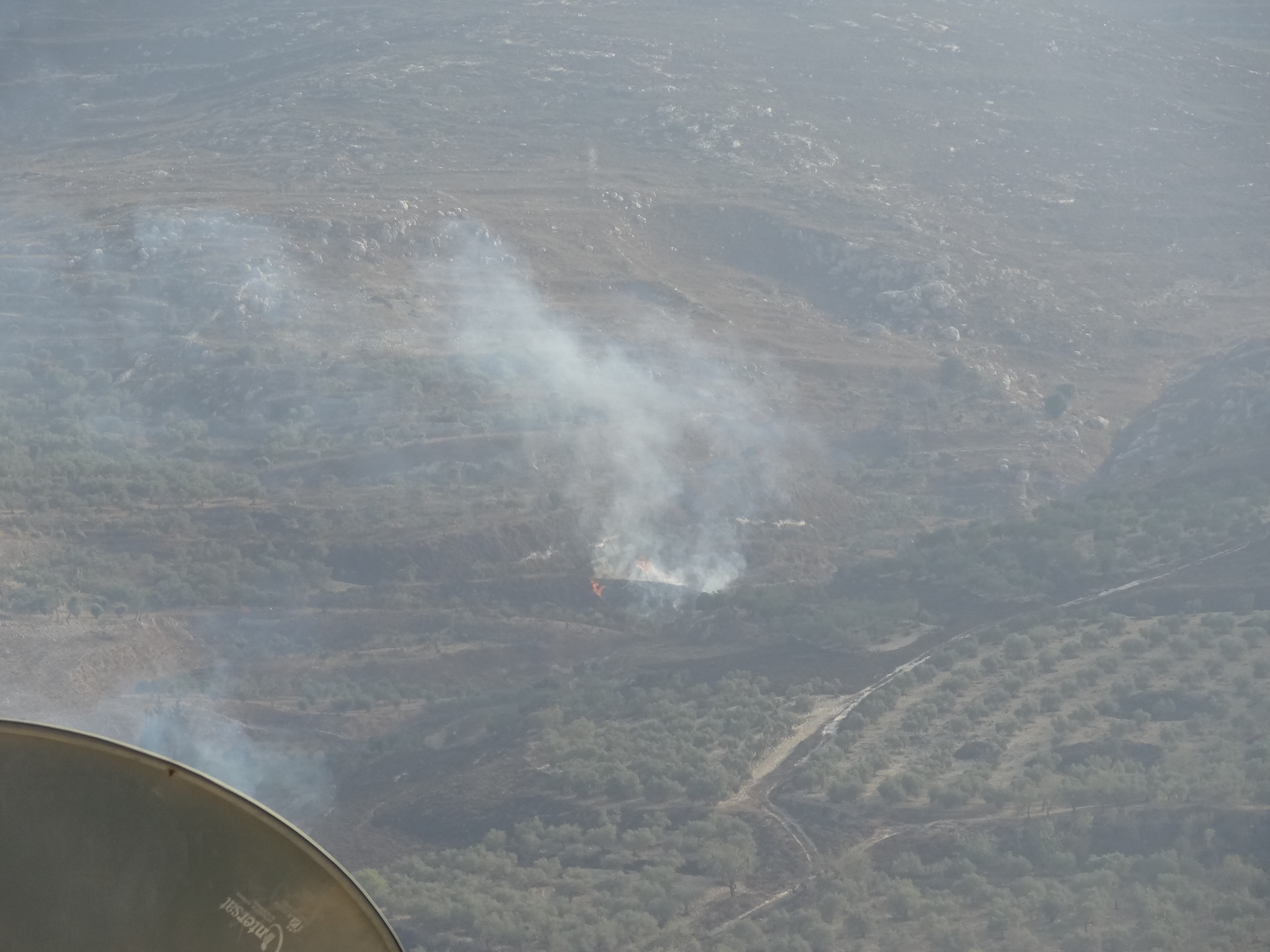Tag: Settlement
-
Settlers set Palestinian land ablaze in village of Burin
By Alex Marley 15 September 2012 | International Solidarity Movement, West Bank In the afternoon of Tuesday, 11 September 2012, settlers from the illegal Israeli settlement of Yitzhar burned farmers’ land containing almond trees in the Palestinian village of Burin. Around 10 settlers came down from the nearby settlement of Yitzhar and started to burn…
-
Settlers destroy 18 olive trees Burin
By Alex Marley 11 September 2012 | International Solidarity Movement, West Bank Eighteen Palestinian-owned olive trees were destroyed by Israeli settlers in the village of Burin, near Nablus, when the illegal settlers attacked the Palestinian land on Tuesday 4 September 2012. Burin, located in the northern West Bank, comes under frequent attack from the illegal…
-
Hebron man walks down street for first time in years
By Ben 10 September 2012 | International Solidarity Movement, West Bank On Sunday 9th September, Hashem Azzeh walked down the street outside his house for the first time in years. Hashem lives with his artist wife Nasreen and their four children (14, 9, 4 and 2 years old) on a hillside in the Tel Rumeida…


